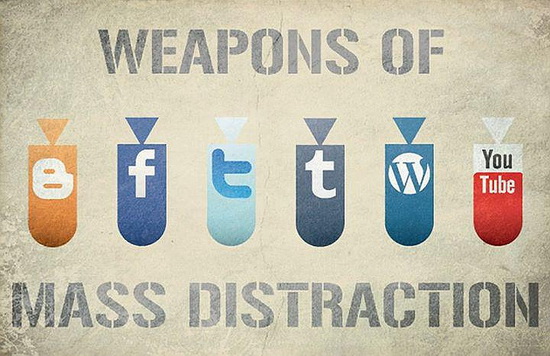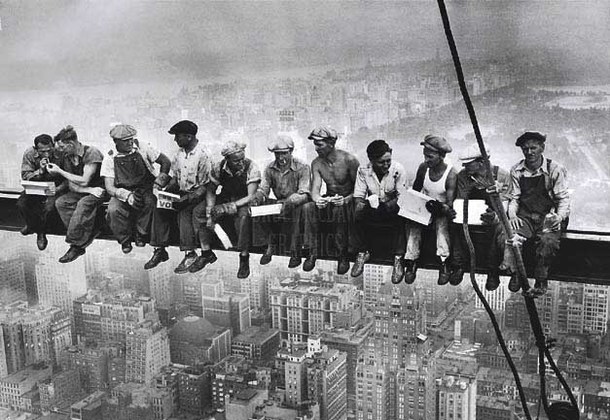Getting focused, not to mention staying focused, is almost impossible these days. T ry one or all of these 8 Ideas to Get More Done Without Working 8 Days/Week

Over time, you’ve probably seen a lot articles comparing orchestra conductors to leaders. It’s a great metaphor with a lot of embedded wisdom and insight.
Michael Hyatt provides a nice summary in his podcast, Leadership Lessons from a Symphony Conductor. (For a slightly different take on this metaphor, take a look at a brief article I wrote many years ago, Leading by Listening? What a concept!)
How are orchestra conductors and pilots alike?
What about the intense focus that consumes a conductor during an orchestra concert?
I’ve long thought that pilots and orchestra conductors have at least one powerful attribute in common.
They are intensely focused while they’re doing their job. They block out everything as they perform their job, riveted to the outcome they seek. At least, that’s what I hope pilots are doing.
Intense Focus is actually refreshing
There is another phenomenon at work here, too. Have you ever noticed how refreshing it is when you’re so focused on something that you lose track of time? For me, it happens even more powerfully when I’m doing something I don’t often do.
I think your mind actually skips a few beats as it steps across some imaginary boundary and arrives somewhere that’s so consuming that nothing else matters or occurs to it.
What happened when I took flying lessons?
I know it happened when I took flying lessons many moons ago. When you add a few doses of fear (actually, a really big helping of it) to a lack of aeronautical knowledge and great big earth that you know you’ll eventually need to return to in the gentlest of manners, it kinda keeps your attention. I was in another world, so focused I thought my brain would explode.
Like, really, really BIG TIME. I could have been living on another planet I was so focused on what I was doing.
Then, when I eventually landed (thanks to both God and my other copilot), I felt invigorated, so refreshed it was like I just returned from a vacation.
Crazy, huh?
Fear will surely keep your focus tight
Fear is major source of focus, isn’t it?
The fear of falling or failing is pretty much the same.
Whenever I see the powerful image below, my stomach turns to water. It’s still one of my favorite images and yet I am absolutely baffled when I watch these guy sitting around like they’re in the local pub playing darts. I even sometimes wonder if this image could even be real.
How about you?

This image is a monument to Focus
The intense focus that keeps everything else out of your head is both a great relaxer and a refreshing monument to the power of focus.
We, too, should strive to gain the intense focus possessed by symphony conductors and airline pilots.
There is absolutely no room for distractions, no room for lack of focus because failure is not an option, regardless of whether that fear is triggered by several thousand patrons or several hundred passengers.
Why not get additional Productivity Tips on the Sword Tips blog? There is more coming, too. By subscribing now, you won’t miss anything. It’s free … and you can unsubscribe at any time if we’re not keeping our promises to you.
We need to emulate something that requires intense focus
What are some other single focus activities that can be both powerful and refreshing?
- We know a pilot or symphony conductor is a great choice.
- Public speaking is a strange choice, but how often have you thought of anything outside of your presentation while you were giving it?
- What about an athlete in intense competition?
- Skydiving I hope. Without a parachute, it’s a once-in-a-lifetime experience.
- Reading an intense mystery or thriller novel can often transport you to a totally different world. It sure works for me.
What about our focus in the workplace?
Office workers are interrupted — or self-interrupt — roughly every three minutes, academic studies have found, with numerous distractions coming in both digital and human forms. (This article describes many other challenges as well as possible solutions.)
Once thrown off track, it can take some 23 minutes for a worker to return to the original task, says Gloria Mark, a professor of informatics at the University of California, Irvine, who studies digital distraction.
[pullquote]The secret of getting started is breaking your complex, overwhelming tasks into small manageable tasks, and then starting on the first one. ~Mark Twain[/pullquote]
I remember back the 1970’s when workplace distractions were just as rampant. They were just different.
At one point, driven by the same dynamics we experience today, someone was on a mission to implement “Quiet Time”, with bright red signs shaped like stop signs. The idea was that you would stick one on your door, or near the opening to your cube (a concept very new about then), and everyone would honor it.
We tried it for an hour/day and it worked. No one was supposed to bother you, knock, visit, call … nothing unless, as I liked to say, there was blood on the floor.
8 Concepts to Focus & Get More Done Without Working 8 Days a Week
We all get so much more done when we’re focused. Try any or all of these 8 Concepts to Get More Done without working 8 Days a Week.
1. Organize Your Workspace.
You don’t see conductors reading a book or pilots watching television while they’re focusing on their work. There is an intense, single focus on just that activity.
Organize your workspace accordingly.
2. Find another workspace.
If you can’t organize your own workspace?
Leave. Go somewhere else where the distractions aren’t in your face.
The old school view is that a coffee shop has too many distractions, but I’d submit that there are far fewer distractions than in your office. They are also of a much different nature.
There is ambient noise but that can be almost soothing. It doesn’t create as much “interruptus” as much as it blocks out other distractions. Besides, if you’re working on your laptop or tablet, or even reading a document, you’ll be focused on that single activity and not the other hundred things lurking about your workspace.
3. One thing at a time.
Multitasking is a mirage. You think it’s there, helping you along, but it’s not. You can’t do more than one thing at a time.
In fact, I’ll bet you a dollar to a doughnut that if you focus on 5 things each over the course of an hour, you’ll make much more progress than paying attention to all of them, mixing them all around, over the same 60 minute period.
If you have any doubt about this, start with When Multitasking Makes You Happy and When It Doesn’t.
Still not convinced? Try Why Multitasking Doesn’t Work.
Still not enough? Consult The Google and be prepared for the tsunami when you look up “distractions” or “lack of focus”.
4. Get rid of the “open door policy”.
I know it makes you appear to be more accessible … maybe you’re actually more accessible … more “one of the people” … but it also creates endless distractions.
Your job is not to be accessible 24/7 to anyone and everything.
I know many senior executives who proudly boast of their open door policy … but those are the same executives who are known as someone who is always late, documents go in but never come out … and any initiative in which they’re involved? Count on it to be very late indeed.
If you have to, have an open door for a few hours/day. Max.
5. Stop living in your inbox.
Check your inbox and social media site at the door.
Set a specific schedule and follow it.
Don’t worry, they’ll find you if there’s blood on the floor. Otherwise, whatever is there will await your attention. Unfortunately, it won’t leave without you.
“Your inbox doesn’t set your agenda. It sets the agenda for others.” Via Exkalibur.com Click to Tweet
They contact you when it’s convenient for them.
If you’re going to be an effective executive, you need manage your own agenda, on your time and in accordance with your schedule … so you can do the things that ONLY YOU can do.
6. Make lists. Follow them. Don’t deviate.
I’ve written often about the value of checklists. There’s a real no-brainer “proof of concept” there you don’t want to miss.
It can also keep you inside the guard rails. If your daily work list, in whatever form it takes, is complete, sticking to it, without careless or thoughtless distraction, can make all the difference.
7. Track your time
This is a time-honored way that probably harkens back to the dawn of the industrial age … that image of an engineer standing around with a stopwatch in hand.
If you’re really struggling and are at a loss for where you’re spending … or wasting your time … try keeping track of what you do over the course of one week. Don’t think about it, just write it down. At the end of the week, you’ll probably be surprised by how your week went.
8. Block out time
There are many ways to do this. I like the idea of blocking out 1-2 hours, first thing in the morning, to tackle the top priority for the day without looking up to see who’s looking for who to do what.
Tony Schwartz of The Energy Project describes his routine of creating a sacred 90 minute block of time for personal effectiveness, and hey, we’re all about effectiveness here, aren’t we?
You could also try blocking out multiple times throughout the day to focus more intently on specific projects.
What works for you?
Let’s summarize:
- Organize Your Workspace
- Find Another Workspace
- One Thing at a Time
- Get rid of the “Open Door Policy”
- Stop Living in Your Inbox
- Make Lists. Follow Them. Don’t Deviate
- Track Your Time
- Block Out Your Time
Question: Take a moment to share some of the practical strategies that work for you. Everyone struggles with this issue. Let’s see if we can make some progress.
Visit our Facebook Page or @Exkalibur on Twitter to share your thoughts and comments.
In the meantime, pretend you’re a pilot. There are a lot of lives at stake (mostly yours in our little pretend world) but you’re going to intensely focus to make sure you have a successful flight and a safe landing.
Wasn’t that easy?

